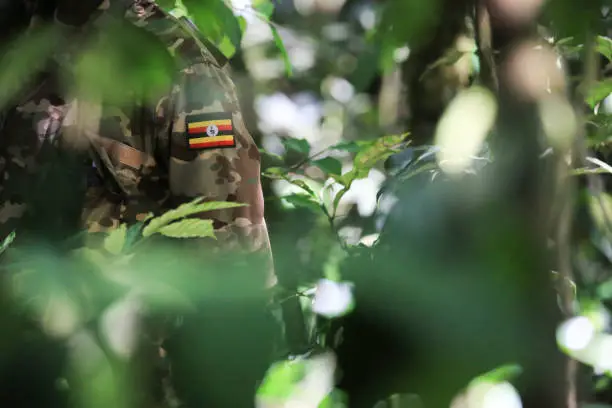Uganda has officially severed its military cooperation with Germany
3 min read
"Uganda severs military collaboration with Germany, signaling deepening diplomatic tensions between the two nations."
Uganda has officially severed its military cooperation with Germany
Uganda has officially severed its military cooperation with Germany, citing alleged interference in internal affairs and accusing the German ambassador of supporting anti-government factions. The decision marks a significant deterioration in relations between the two countries and adds to a growing pattern of Uganda asserting its sovereignty against perceived foreign meddling.
The Uganda People’s Defence Forces (UPDF) announced the suspension following internal intelligence assessments that implicated German Ambassador Matthias Schauer in what they described as “subversive activities.” According to the UPDF, Schauer had direct contact with individuals deemed hostile to the Ugandan state, including involvement in a private meeting with President Yoweri Museveni’s brother. During that meeting, the ambassador allegedly criticized General Muhoozi Kainerugaba—the President’s son and current head of the UPDF—for his controversial activity on social media.
While details of the meeting remain largely undisclosed, Ugandan authorities took issue with Schauer’s remarks, interpreting them as an intrusion into domestic military affairs and an attempt to undermine national leadership. The UPDF characterized the ambassador’s conduct as “negative and traitorous,” and warned of further consequences if similar actions are repeated by foreign diplomats.
CHECK ALSO:UN Human Rights Office says ‘deeply troubled’ by Kenya protester deaths
Germany has not yet issued an official response to the accusations or the suspension of military collaboration. Historically, Germany has played a supportive role in Uganda’s defense sector, providing logistical aid, training, and technical expertise. In 2023, bilateral trade between Uganda and Germany topped $335 million, highlighting the depth of their economic ties and the potential impact of this diplomatic rupture.
This unexpected move not only disrupts a long-standing security relationship but also hints at deeper political tensions brewing within Uganda and in its interactions with Western powers. As Uganda gears up for its 2026 presidential elections, the government has grown increasingly sensitive to external commentary and influence, especially from nations perceived to support opposition voices or human rights critiques.
President Museveni, who has ruled Uganda since 1986, has often pushed back against international pressure over governance, civil liberties, and political reforms. The recent standoff with Germany may signal a broader clampdown on foreign influence as the ruling party tightens its grip ahead of a potentially contentious electoral cycle.
Diplomatic analysts suggest that the suspension of military ties could lead to a cooling of broader bilateral relations. Given Germany’s significant development contributions to sectors like health, infrastructure, and education, the current rift could have spillover effects unless addressed through dialogue.
At the same time, Uganda’s stance is consistent with its recent diplomatic posture. The East African nation has shown a pattern of reasserting its independence in foreign policy, sometimes at the cost of long-term partnerships. Tensions with Western allies have occasionally flared over issues such as LGBTQ+ rights, press freedom, and democratic governance—areas where Uganda sees criticism as interference.
Ugandan officials maintain that the decision to cut military ties with Germany was not taken lightly. Instead, they frame it as a necessary action to preserve national security and uphold sovereignty. The UPDF emphasized that while international cooperation remains important, it cannot come at the expense of national dignity or stability.
It remains to be seen how Germany will respond, and whether this standoff will be resolved diplomatically or lead to further disengagement. Both countries have much at stake: Uganda relies on external support for various developmental initiatives, while Germany benefits from stable partnerships in Africa for trade and regional security.
For now, the suspension marks a low point in what was once a strong alliance. As both sides reassess their positions, the future of German-Ugandan relations hangs in the balance—caught between geopolitics, national pride, and evolving global dynamics.






